Search Results
Showing results 741 to 760 of 1010

Bernoulli and More Bernoulli
Source Institutions
This lesson guide includes six simple and quick activities to help learners better understand Bernoulli's Principle.

Energy Sources
Source Institutions
In this activity about the relationship between food and energy (page 5 of PDF), learners conduct an experiment to compare how much energy is released as heat from two different foods.

Milli's Super Sorting Challenge
Source Institutions
In this activity, learners separate materials based on their special properties to mimic the way recyclables are sorted at recycling centers.

Sky Diver
Source Institutions
Students design and build their own parachutes in this hands-on engineering project.
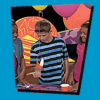
Balloon Flinker
Source Institutions
In this activity, learners make a helium balloon "flink"--neither float away nor sink to the ground. Use this activity to introduce physics concepts related to gravity, density, and weight.

Cauldron Bubbles
Source Institutions
In this activity, learners mix up a bubbly brew and examine density. Learners explore how they can make different materials fall and rise in water using oil, water, and salt.
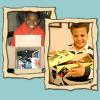
Create Your Own Time Capsule
Source Institutions
In this archaeology-related activity, learners build their own time capsule and choose a storage location and a date to reopen it.

Outrageous Ooze: Is It a Liquid or a Solid?
Source Institutions
This activity provides instructions for using cornstarch and water to make an ooze which has the properties of both a solid and liquid.

Tri, Tri Again
Source Institutions
Learners estimate how many small triangles will fill a larger shape. Then they use a triangle stamp (or stencil made from a file folder) to fill the larger shape with triangles.
Plants: Hanging Tough
Source Institutions
In this hands-on activity, learners will become familiar with the special adaptations of rainforest plants and discover the conditions needed for tropical trees to survive along with what can impinge
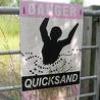
COSI Quicksand
Source Institutions
In this chemistry experiment, learners get to make a very bizarre substance using corn starch and water. Is it a solid? Is it a liquid? Or is it a different kind of substance entirely?

CD Air Puck
Source Institutions
In this activity, learners will use a compact disc to build an air puck that can glide across a smooth tabletop. The puck glides with almost no friction on a cushion of air escaping from a balloon.

Size and Distance
Source Institutions
In this activity about depth perception, learners create an optical illusion in a shoe box.

DIY Bath Bombs
Source Institutions
In this activity, learners will explore acid-base reactions and create their own bubbly results.
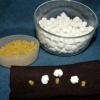
Nuclear Fusion
Source Institutions
This simple and engaging astronomy activity explains nuclear fusion and how radiation is generated by stars, using marshmallows as a model.
Tropical Belt
Source Institutions
This lesson familiarizes learners with the term "tropical belt." First, learners locate the equator, Tropic of Cancer and Tropic of Capricorn on a map and trace these lines with a crayon.
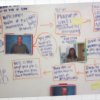
The Awesome Game Race
Source Institutions
In this engineering activity, learners design their own board games.
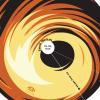
Race Around the Black Hole
Source Institutions
In this game, learners cutout a model black hole "cone" and attempt to roll around a marble or other small spherical object without touching the event horizon.

Getting Your Bearings
Source Institutions
In this activity, learners explore the concept of friction and how ball bearings reduce friction.
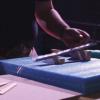
Chain Reaction II
Source Institutions
In this hands-on activity, learners use an assortment of (mainly household) items to complete Rube Goldberg-type challenges.
